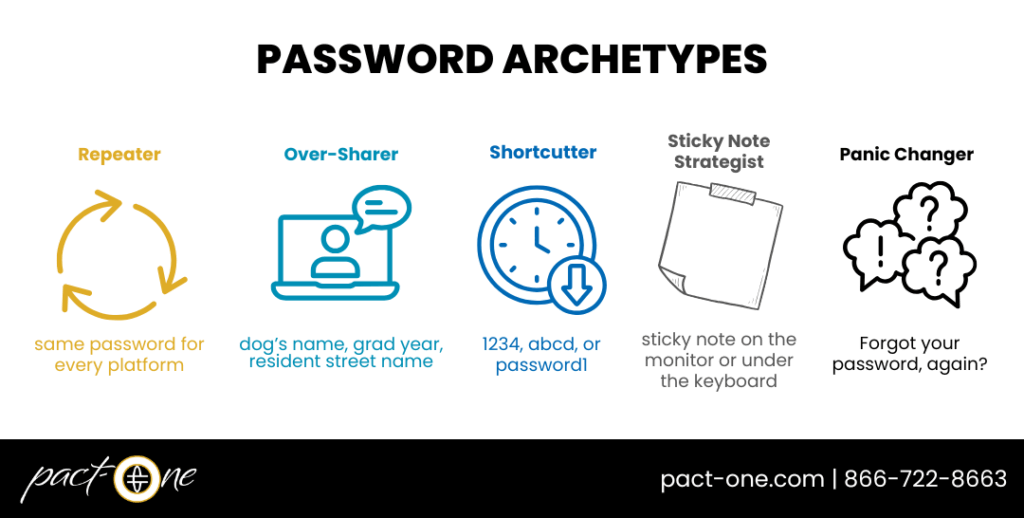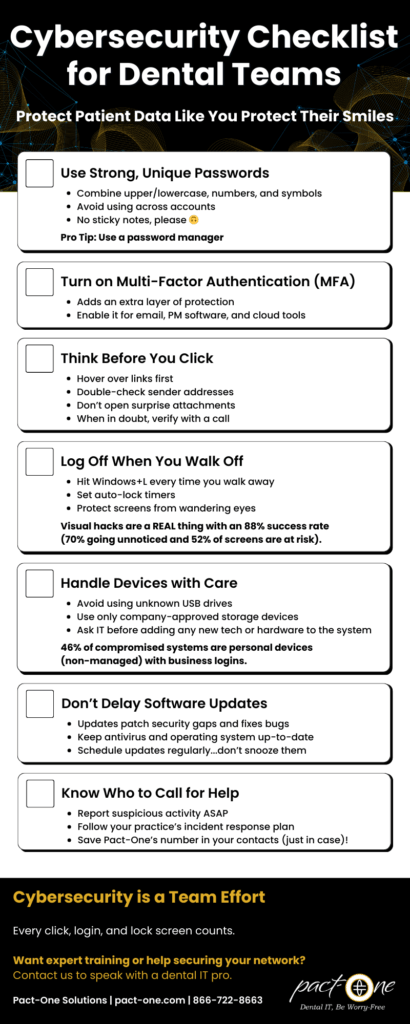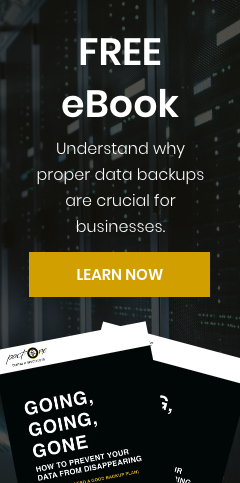You’re juggling patients, insurance calls, schedules, and the occasional “Where’s my coffee?” mystery. But amid the daily whirlwind, there’s something quietly lurking in the background that could really take a bite out of your day, and your practice: cyber threats.
That’s right. Cybercriminals aren’t just targeting big corporations anymore. Dental practices, especially growing ones like yours, are on their radar because of the goldmine of sensitive data you handle every day.
The good news? You don’t need to be a tech wizard to protect your practice. Just a little know-how, a few smart habits, and a team that’s all in.
So, let’s dive into the 7 cybersecurity best practices every dental team member should know...because when it comes to cybersecurity, the front desk is just as important as the network closet.
1. Keep Passwords as Strong as Your Morning Coffee
"123456” isn’t a password, it’s a welcome mat for hackers.
Encourage your team to:
- Use unique passwords for every system or account
- Include a combo of upper/lowercase letters, numbers, and symbols
- Use passphrases they can remember but no one else can guess (e.g., MyDogEatsFloss!2025)
- Remove themselves from the Password Archetypes (see below)
Bonus Tip 1: Share this resource with your team --> Create Masterful Passwords to Protect Your Data
Bonus Tip 2: Use a reputable password manager to keep things secure without relying on sticky notes under keyboards (we see you, Sticky Note Strategist).

2. Multi-Factor Authentication: It's Like Double-Knotting Your Laces
If passwords are the lock, multi-factor authentication (MFA)/two-factor authentication (2FA) is the deadbolt. This is especially true since over 60% of data breaches can be traced to weak credentials.
Whenever available, activate MFA on email, practice management software, cloud storage, and any other logins tied to patient or financial data. It’s a small step that creates a massive roadblock for cybercriminals.
3. Think Before Your Click, Even If It Looks Legit
Phishing emails are getting really sneaky. A link from “Dr. Smith” might actually be from “Dr. Scammer.”
Train your team to:
- Double-check sender email addresses
- Hover over links before clicking
- Never download unexpected attachments
- When in doubt, verify through another channel (like a phone call)
Don’t take MC Hammer’s advice, an email CAN be 2 Legit 2 Quit.
Get more insight on phishing emails with the following resources:
- How to Train Your Dental Team to Recognize Phishing Emails
- How to Spot Phishing Scams: 5 Signs Dental Practice Should Look For
- Defending Your Dental Practice Against Phishing Scams
- Prevent Phishing Scams in Dental Practices by Learning to Read URLS
- Widely Used Phishing Subject Lines
4. Log Off When You Walk Off
Leaving a workstation unlocked is like leaving the front door wide open...except instead of burglars stealing jewelry, hackers can steal patient identities. Or a peeping tom (another patient) may be gathering information while you’ve stepped away from the front desk.
Make it a team-wide habit to:
- Lock screens anytime a computer is unattended (Windows+L is your friend)
- Set up automatic screen lock timers (ask your IT partner...that’s us!)
- Be mindful in shared spaces, especially if patients or visitors are nearby
Bonus Tip: Even if you don’t walk off it’s important to keep your monitor secure while working. That peeping tom (visual hacker) could be stealing information right from under your nose. In fact, a study conducted by Ponemon Institute (sponsored by 3M) found that 88% of visual hacks are successful (70% goes unnoticed, 52% of screens are at risk). To add another layer of security, get privacy screen filters for all your dental office monitors. Not only does it prevent visual hacking (that peeping tom we discussed previously) but many act as blue light filter and anti-reflective screen.
5. Be Careful with USBs, Drives, and Random Devices
That “free” flash drive from last month’s conference? Could be carrying more malware than useful brochures. And no device is off-limits. According to the Verizon 2025 Data Breach Investigations Report, 46% of compromised systems were personal devices (non-managed) with business logins.
Team members should:
- Avoid plugging in unknown USB drives
- Use only company-approved storage devices
- Let IT know before adding any new tech or hardware to the system
Your dental office has policies for sterilizing instruments; this is just the digital version of keeping things clean.
6. Keep Software Updates on Schedule (Not "Snooze Until Next Month")
Yes, we know...those update pop-ups are annoying. But skipping them is like ignoring a leaky roof. Sooner or later, something’s going to break.
Software updates patch security holes that hackers are just itching to exploit. From your practice management system to your antivirus software, stay updated to stay protected. Create a plan for software updates and make sure each employee is aware of it.
For example, as an IT managed service provider for dental practices, Pact-One's alert system identifies which practices need operating system (Windows) updates and we work with the office to conduct those updates at a time that doesn’t interfere with their daily operations. Additionally, when a practice receives an update pop-up or notification from a software provider (Dentrix, Eaglesoft, Open Dental, etc.), we complete the following:
- We investigate the version being requested to ensure there aren’t any hiccups with the new release (not ALL versions are created equal)
- We verify requirements (hardware and operating system specs, etc.)
- We check compatibility with client’s specific 3rd party applications (Weave, Modento, ADIT, Vyne, etc.) before applying to their system
- Identify how long the update will take to run (based on number of workstations in office, etc.)
- Notify the client of findings and either recommend holding off (until kinks have been worked out) or schedule a date/time that works best to run the update (to not interfere with daily operations)
7. Know Who to Call (Hint: It's Not Ghostbusters)
Cybersecurity isn’t just about prevention, it’s about response. Make sure everyone knows:
- Who to contact if they suspect something’s off
- What to do in case of a potential breach or suspicious email
- Where to find your practice’s incident response protocol
Bonus Tip: Include this in your employee manual and as part of your new dental employee training. Whether you have in-house IT or outsourced IT, every dental team member should know what to do or who to call.
Cybersecurity Checklist for Dental Teams
Here's your visual checklist to keep your practice cyber-safe, one smart habit at a time.
Cybersecurity is a Team Sport
No one expects your hygienist to be a hacker-hunting superhero (although that’d be pretty cool). But every dental team member plays a crucial role in keeping your dental practice’s patient data secure and reputation intact.
By embracing these seven best practices, your team becomes your practice’s first and best line of defense.
And remember, you don’t have to do it alone.
At Pact-One, we specialize in building secure, HIPAA-compliant IT infrastructures for dental practices like yours. If you’re not sure where your vulnerabilities are or you want to build a stronger digital defense, let’s talk. Your patients trust you with their health. Trust Pact-One to help you protect their data.
Want a simple, engaging way to train your dental team on cybersecurity? Ask us about our customized team workshops.
Dental IT. Remove the Burden. Embrace the Use.
Quality patient care – it's ultimately why you became a dental professional. But, some business operations can get in the way (such as pesky computer issues or lack of IT support). That’s where Pact-One Solutions can help! Our passion lies in supplying reliable, responsive dental IT support and security that practices can count on.
Whether you’re looking for dental IT services for your startup or searching for more responsive dental IT support – our team of dental IT specialists have you covered. With team members throughout the United States, we offer nationwide support to dental practices of all sizes, specialties, and stages of growth. Our wide range of dental IT services ensure your data is secure, accessible, and protected.
Don't let technology challenges hinder your ability to deliver exceptional dental care. Contact us at info@pact-one.com or 866-722-8663 to join over 1,000 dental professionals thriving with the support of a dedicated dental IT team.




You must be logged in to post a comment.